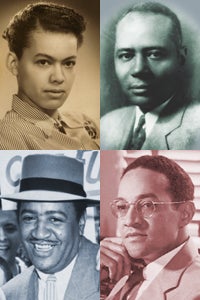Charles Hamilton Houston ’22 S.J.D. ’23, Raymond Pace Alexander ’23, Ben Davis ’29 and William Hastie ’30 S.J.D. ’33—all of these black civil rights attorneys graduated from Harvard Law School within a 10-year period. (And others, such as Pauli Murray, longed to attend, almost 10 years before the school admitted women.)
It was a time when black people were migrating north, notes HLS Professor Kenneth Mack, the author of “Representing the Race: The Creation of the Civil Rights Lawyer,” published by Harvard University Press in April (see related story). HLS had long been the national law school, he says. “These black lawyers are part of that,” he adds, noting that many of them were influenced by Roscoe Pound and Felix Frankfurter LL.B. ’06, HLS faculty who urged them to apply social science methods to the study of law.
“They’re well-educated, they’re ambitious, and they’re coming here to be part of something larger—that’s what Harvard Law School does historically—but they’re still connected to local black communities,” he says. “And for the rest of their lives they are torn between the two.”
According to Mack, Ben Davis, who eventually became a high-level official in the American Communist Party, embodies the complexity of that relationship. Even after being imprisoned for nearly four years for his political affiliations, when he was released and came to speak at the Harvard Law Forum, says Mack, “he looks back wistfully to his years at Harvard Law School, when he met all these young, white lawyers-to-be who went on to be important people in American life.”
Photos courtesy of The Schlesinger Library, University of Pennsylvania Archives, and the Library of Congress.
